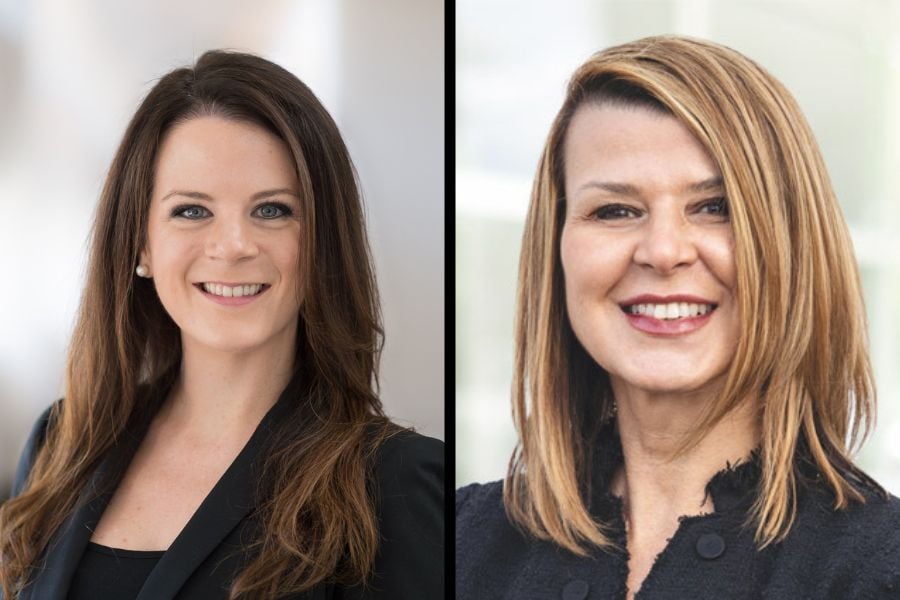

As a tsunami of wealth is set to change hands in the next 25 years, what can advisors do to ensure they're connected with the next generation?
That's a crucial question raised by Orion's inaugural investor survey, which found that 18 percent of investors are likely to switch advisors if they inherit between $500,000 and $1 million. For those inheriting $1 million or more, the likelihood of switching goes up to 24 percent.
Millennials represent an even greater flight risk, according to the survey, as that cohort expressed a 37 percent likelihood of finding a new advisor upon receiving an inheritance of $1 million or more.
Maria Quinn, senior advice strategist in Vanguard’s Investment Advisory Research Center, says the wealth wave represents a risk and an opportunity for the wealth industry at large.
"The opportunity posed by [the] great wealth transfer cannot be understated, with recent data finding that $124 trillion will transfer to heirs and philanthropy in the next 25 years," Quinn said in an email, citing statistics from Cerulli's latest report on high-net-worth and ultra-high-net-worth markets.
Fifty percent of that transfer is coming from UHNW families, representing some $62 trillion in total assets, Cerulli found. Broken down by generation, Gen X is expected to receive $39 trillion, while millennials are poised to get $46 trillion.
"Assets in motion pose risk of potential loss of assets in a book of business," Quinn said.
Karen McColl, senior vice president of Wealth Management at Commonwealth, agrees that retaining next-generation inheritors should be a focal point for advisors.
"The stats show us that among the new generation that comes into an inheritance, about 70 percent of those clients are switching out their advisors," she told InvestmentNews, citing statistics from Legacy Capitals. Commonwealth announced a partnership with Legacy Capitals in October to help advisors manage family dynamics and assist in wealth preservation across multiple generations.
Next-generation inheritors want to be included and educated, McColl said. But because many advisors don't have the same emotional or intellectual connection with them as prior generations, she said too many aren't taking the opportunity to engage.
That lack of action, Quinn said, is a serious strategic mistake.
"Advisors seeking to successfully manage wealth transfer amongst their HNW clients must establish relationships with the next-generation of family members," she said, highlighting the importance of having "a multi-generational offer encompassing wealth transfer planning and more."
A crucial first step is to sit down with the matriarch and the patriarch, encouraging them to articulate their hopes, fears, and concerns for the for the next generation, McColl said.
"A lot of these clients don't know how or where to begin," she said. "We've been doing a lot of work around becoming a whole-family advisor – not just being client-centric, but thinking about that extended family and getting them to focus on their purpose."
Timing is also crucial. While parents may want to put off wealth talks, Quinn encourages advisors to initiate those conversations early on in their children's adulthood. "Our in-house research has shown the best time to target those relationships is between the ages of 18 and 25," she said.
"We are strong believers in conducting family meetings, when an advisor will bring in those multiple generations," McColl said. "They'll work with the primary client, develop the agenda, and get a family together in the same space to really focus on these things."
Another concern for affluent parents, McColl said, is how to involve the next generation without divulging the exact amount of the family's wealth before they're ready. One effective tactic, she said, is to have learning components to gradually orient them in the process of wealth management.
"Start with some educational components to get them more financially literate and aware of things like filling tax forms," she said. "It can also help to have a seminar in the advisor's office, where they bring in other next-gen clients so they understand there are others in similar situations."
Drafting a family letter can also be an effective strategy, McColl said. By helping family heads speak to future generations about their legacy – how they started a business, the impact they've had on the world, and how it helped build the foundation for the family's wealth – she said advisors can forge a powerful connection with the next stewards of their client's assets.
"It's not investments; it's not planning. It's the emotion. It's the family story, the family legacy," she said. "That becomes really powerful when someone writes that from the heart."

Chasing productivity is one thing, but when you're cutting corners, missing details, and making mistakes, it's time to take a step back.

It is not clear how many employees will be affected, but none of the private partnership’s 20,000 financial advisors will see their jobs at risk.

The historic summer sitting saw a roughly two-thirds pass rate, with most CFP hopefuls falling in the under-40 age group.

"The greed and deception of this Ponzi scheme has resulted in the same way they have throughout history," said Daniel Brubaker, U.S. Postal Inspection Service inspector in charge.

Elsewhere, an advisor formerly with a Commonwealth affiliate firm is launching her own independent practice with an Osaic OSJ.
Stan Gregor, Chairman & CEO of Summit Financial Holdings, explores how RIAs can meet growing demand for family office-style services among mass affluent clients through tax-first planning, technology, and collaboration—positioning firms for long-term success
Chris Vizzi, Co-Founder & Partner of South Coast Investment Advisors, LLC, shares how 2025 estate tax changes—$13.99M per person—offer more than tax savings. Learn how to pass on purpose, values, and vision to unite generations and give wealth lasting meaning
